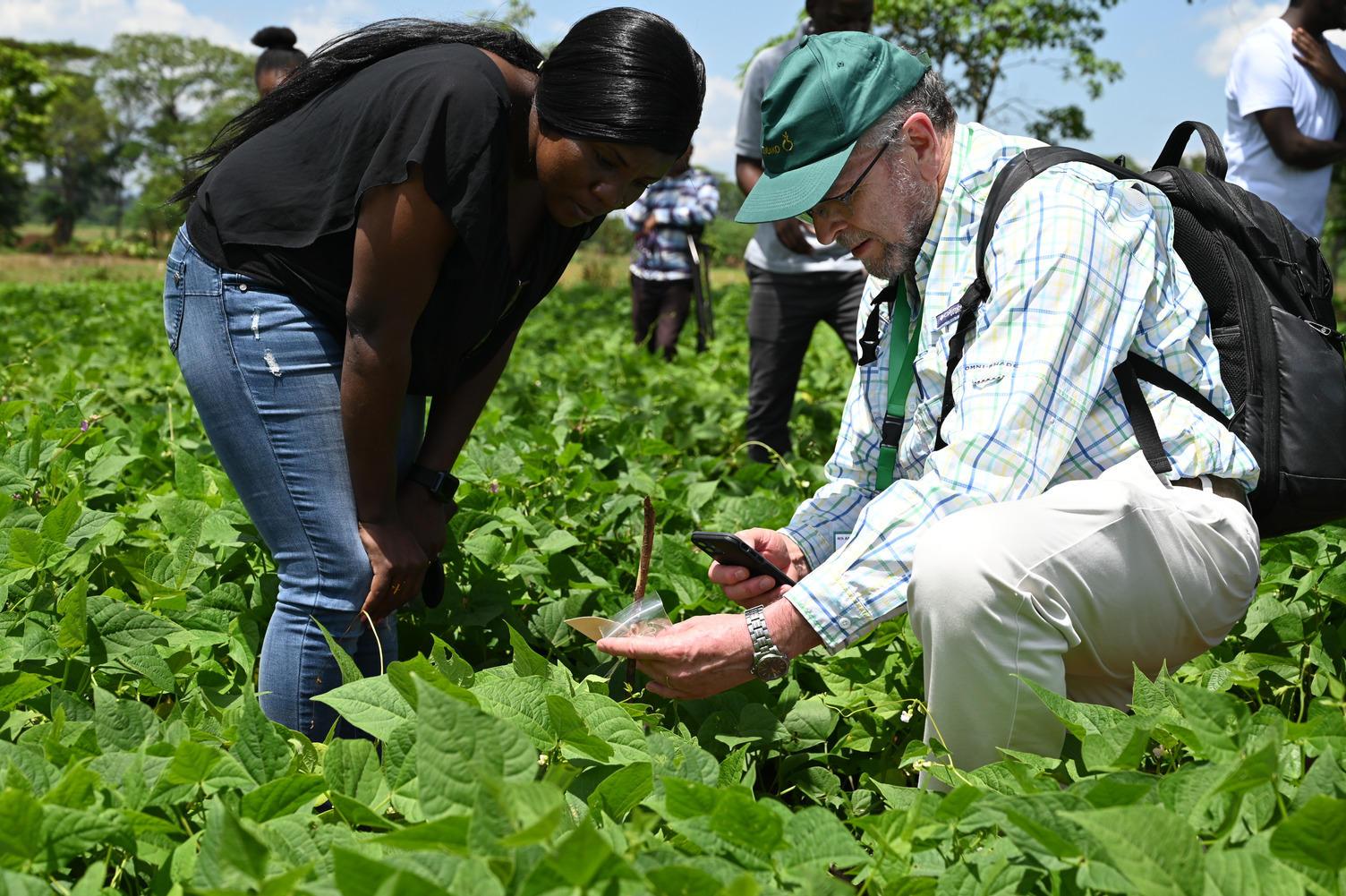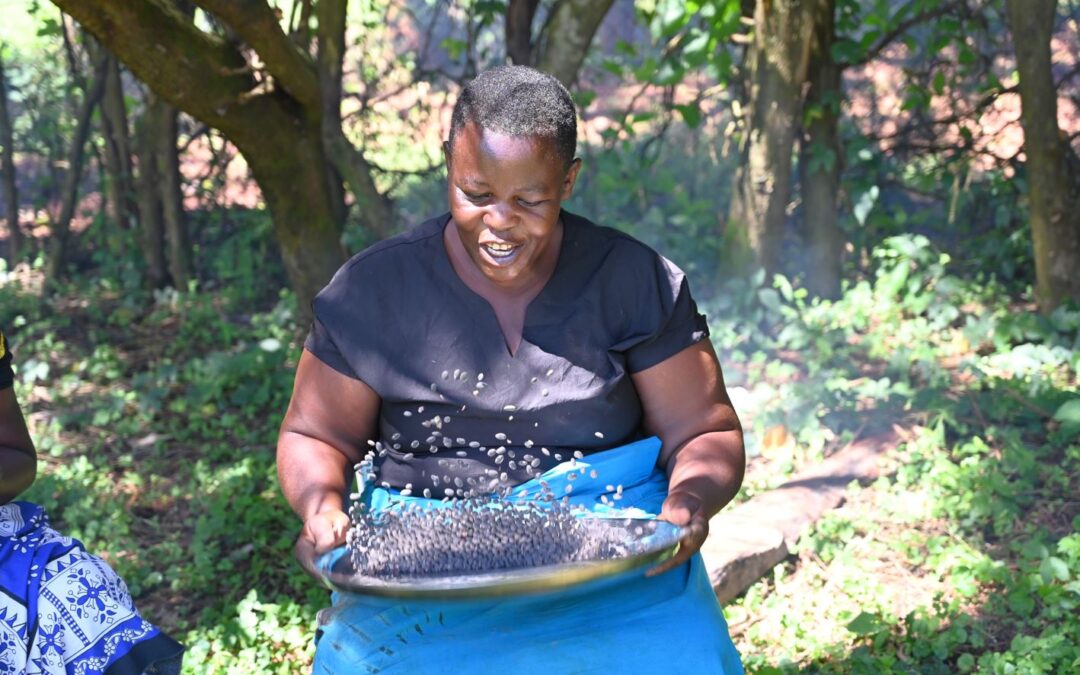New bean varieties developed in Africa through ACIAR-funded research will significantly reduce cooking times and promote greater uptake of these nutritious crops among rural communities.
By: ACIAR
With ACIAR support, The University of Western Australia (UWA) and the Alliance’s Pan-Africa Bean Research Alliance (PABRA) have reduced cooking time by 24% while preserving the crop’s iron and zinc nutritional qualities.
The findings were reported during a recent review of the A$2.48 million initiative aimed at reducing the large amounts of water, fuel and time required for the preparation of common beans. The faster-cooking varieties will make beans more attractive to farming communities and will promote greater consumption.
The research team will now shift to identifying areas and partnerships needed for further technology development and distribution to farmers to combat malnutrition in Burundi, Ethiopia, Kenya, Rwanda, Tanzania and Uganda.

Project leader Prof Wallace Cowling (right) from UWA examining beans with a local journalist during the project’s annual review in Kenya
Working with UWA, African bean breeders will harness cutting-edge plant breeding techniques to release improved varieties to smallholder farmers across the six countries by 2030. As well as integrating new breeding methods, the strategic alliance has fostered a sense of shared achievement and unity among farmers, researchers, universities, policymakers and the private sector.
“The project has shown African plant breeders that using a new approach developed at UWA, they can tackle complex challenges such as breeding beans that cook faster while maintaining iron and zinc content,” said Professor Wallace Cowling, an Associate Director at The UWA Institute of Agriculture.
“They also focus on improving grain yield, seed size and disease resistance, particularly in market-preferred climbing and bush bean varieties. Despite the difficulty, these goals are achievable with the new breeding methods.”

